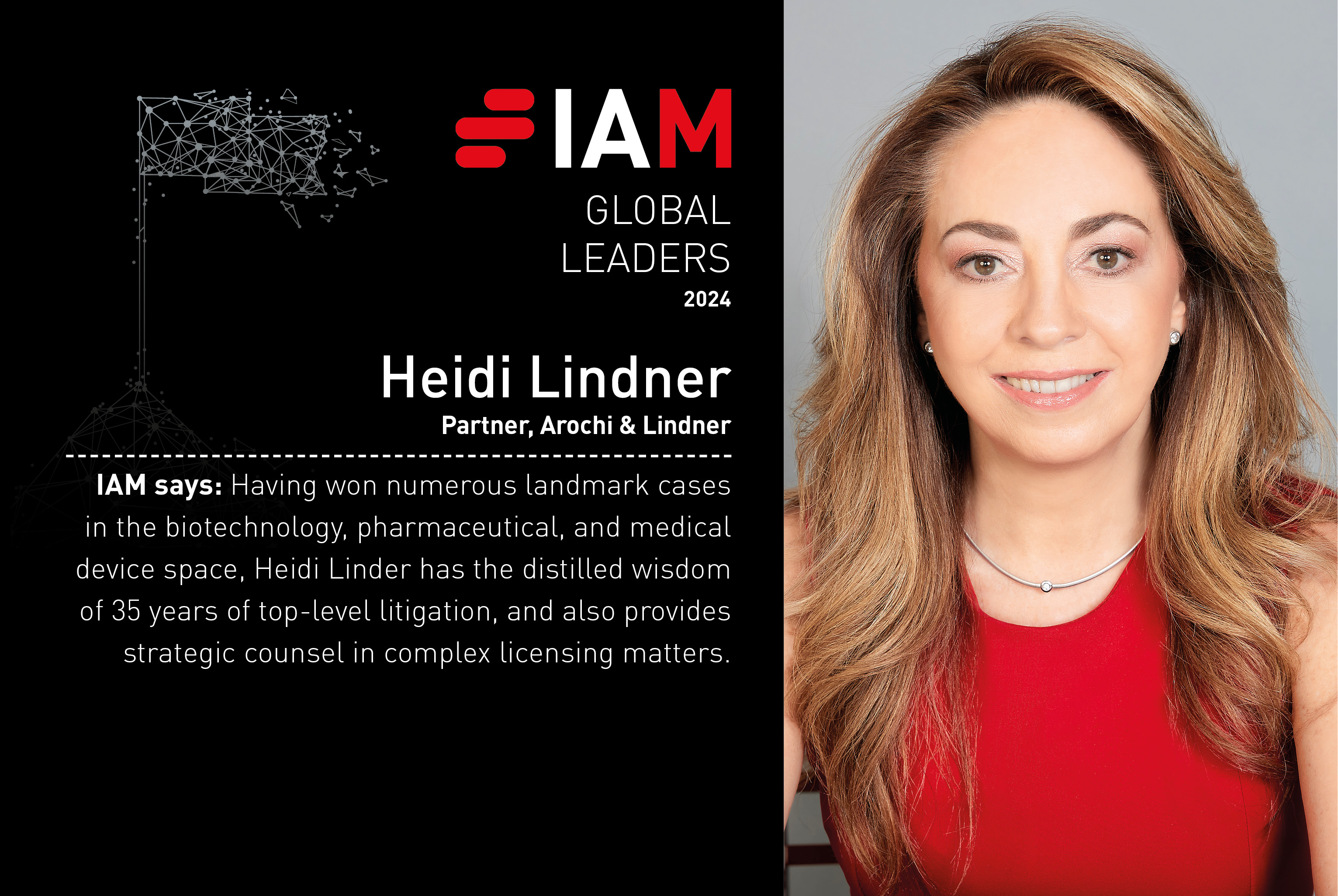Heidi Lindner
 You are the only woman to have held the position of president of the Mexican IP Association. In your view, what could the IP industry be doing to improve opportunities, hiring processes and diversity?
You are the only woman to have held the position of president of the Mexican IP Association. In your view, what could the IP industry be doing to improve opportunities, hiring processes and diversity?
I believe that this is mainly the result of the fact that there are still few female partners in Mexican law firms. It is therefore necessary not only to achieve a greater gender balance when it comes to partners, but also that female partners have a stronger presence in crucial functions within their firms and greater visibility to the outside world. It is critical to not limit opportunities for female attorneys to thrive in the IP landscape. It must be acknowledged that nowadays most law students in Mexico are female, which is why it is so important that future female lawyers have space for their full professional development.
As a leading patent litigator and head of the firm’s patent litigation department, what is your secret to a successful litigation strategy?
The secret to a successful litigation strategy is to provide outstanding professional services and personalised communication with clients, which are the fundamentals of our clients’ trust. It is also essential to have a solid and competent team of scientists and technicians that understand the core of the disputed issues. Finally, detailed knowledge of all relevant life sciences laws and regulations, the criteria and practices of the health authorities and the Mexican courts’ case law are the basis for the construction of sound and efficient patent litigation strategies.
You have secured win after win for clients in the life sciences space. In your view, what are the biggest threats facing life sciences companies right now?
The three biggest threats that life sciences companies face in Mexico are constant regulatory changes, non-transparent regulatory practices by government health agencies and a lack of proper rules for clinical data protection. The Mexican health authorities are constantly changing their standards, criteria and practices for the life sciences industry. This imposes a burden on lawyers to be well informed and aware of all such changes. With regard to clinical data protection, there are no domestic rules that might help to achieve a proper balance between the data owner’s rights and the entry of generic drugs into the Mexican market.
What do you enjoy the most about your work, and why?
What I enjoy the most about my work is discussing the design of new and complicated legal strategies with my team to obtain a result that will satisfy the client's needs and impact Mexican case law. The possibility of contributing to better and balanced legal protection of the life sciences industries also inspires our work.
As an advisor to different Senate commissions during legislative discussions on amendments to Mexico’s new IP law, what changes would you like to see in the Mexican IP landscape, and do you think they are likely to happen?
One change would be having more balanced legislation that considers all of the interests at stake and that fosters the operation of a healthy IP system that responds to new challenges. Some elements that should be added to existing legislation are: patent opposition proceedings, clinical data protection regulations and a Bolar exception clause as per other international treaties. It is essential to strengthen the quality of patent examination at the Mexican Patent Office and outline a more explicit definition of the legal standing required in nullity proceedings – which has been recently amended in practice – to avoid the subsistence of low-quality patents that impact the core of the patent system.
How is the development of AI tools (including ChatGPT) affecting your practice, particularly when it comes to the life sciences?
I believe that I will keep on resisting AI tools like ChatGPT when it comes to providing services to clients until the risks, especially in terms of confidentiality, are fully fleshed out and overcome. On the other hand, the use of other AI tools is essential in the field of robust search engines, which makes it possible to have a broad and better understanding of the state of the art and better advise our clients.
Heidi Lindner
Partner
[email protected]
Heidi Lindner is a senior partner and head of the patent litigation department of Arochi & Lindner. With over 35 years of experience, she is considered a leading patent litigator in life sciences subjects and has a consistent record of wins, including several landmark cases, for clients in the pharmaceuticals, biotech and medical devices industries.